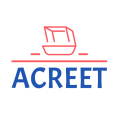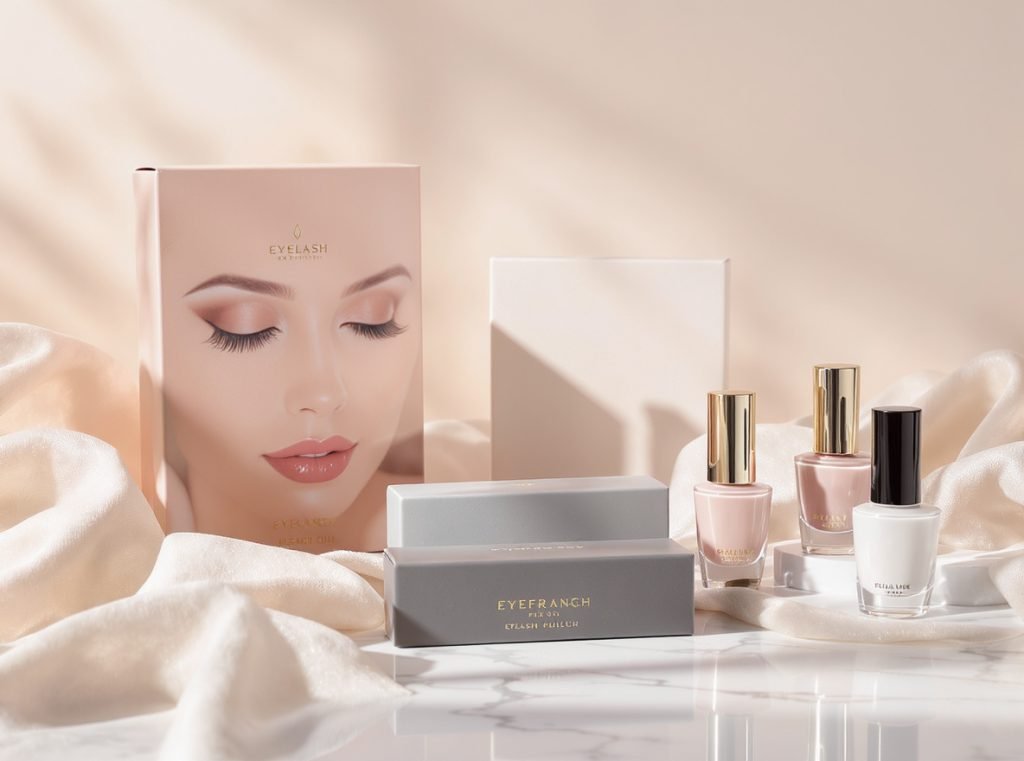Whether you’re launching a new beauty brand or expanding your product line, packaging for eyelash and nail products presents unique challenges that can make or break your market success.
The beauty industry’s packaging requirements for eyelash and nail products involve critical considerations including FDA compliance, product protection, brand differentiation, sustainability demands, and cost optimization. These factors directly impact your product’s market performance and customer trust.
Let’s dive deeper into the essential packaging considerations that will help you create compelling, compliant, and profitable beauty product packaging.
Table of Contents
ToggleWhat Safety and Regulatory Requirements Must Your Packaging Meet?
Understanding regulatory compliance is fundamental when dealing with cosmetic products that come into direct contact with consumers’ eyes and nails.
Beauty product packaging must comply with FDA cosmetic labeling requirements under the Fair Packaging and Labeling Act, include proper ingredient lists using INCI names, safety warnings, and meet specific tamper-resistant packaging standards to ensure consumer safety and avoid legal issues.
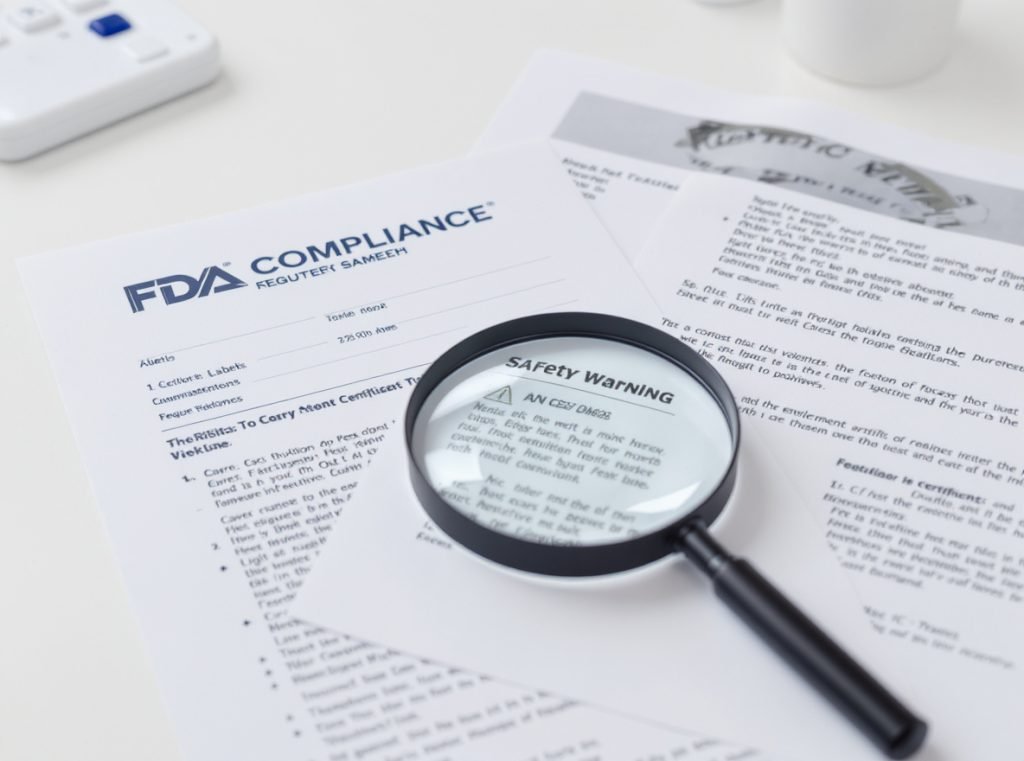
FDA Compliance Essentials
All cosmetic products sold at retail require an ingredient declaration using International Nomenclature of Cosmetic Ingredients (INCI) names, listed in descending order of predominance. Products containing less than 1% of certain ingredients may list those components in any order after ingredients present at higher concentrations.
Your packaging must include these mandatory elements on the principal display panel:
- Brand name prominently displayed
- Product identity description (e.g., “eyelash serum” or “nail polish”)
- Net quantity statement in both US customary and metric units
- Complete ingredient declaration using INCI names
- Manufacturer or distributor contact information
Special Safety Requirements for High-Risk Products
Child-resistant packaging becomes mandatory for specific products that pose safety risks. Nail products containing acetonitrile in artificial nail removers require child-resistant packaging when containing more than 500 milligrams in a single container. Similarly, nail primers containing methacrylic acid (MAA) must use child-resistant packaging due to potential poisoning risks.
| Product Type | Safety Requirement | Packaging Solution |
|---|---|---|
| Nail Polish Remover (>500mg acetonitrile) | Child-resistant packaging | Safety locks or complex opening mechanisms |
| Nail Primers with MAA | Child-resistant packaging | Tamper-resistant closures |
| Eyelash Extension Adhesives | Material Safety Data Sheets | Clear ingredient transparency and warnings |
Hazmat Shipping Compliance
Many nail products contain flammable solvents and qualify as Class 3 Flammable Liquids under DOT regulations. However, Consumer Commodities ORM-D exceptions allow simplified domestic ground shipping for retail-packaged products under 66 pounds gross weight, reducing packaging and labeling requirements while maintaining safety standards.
How Do You Protect Product Integrity During Storage and Shipping?
Product protection is crucial for maintaining quality and preventing costly returns, especially for temperature-sensitive cosmetic formulations.
Effective protection requires temperature control systems, moisture barriers, impact resistance, and proper cushioning to prevent product degradation, contamination, and packaging damage throughout the supply chain from manufacturing to end consumer.
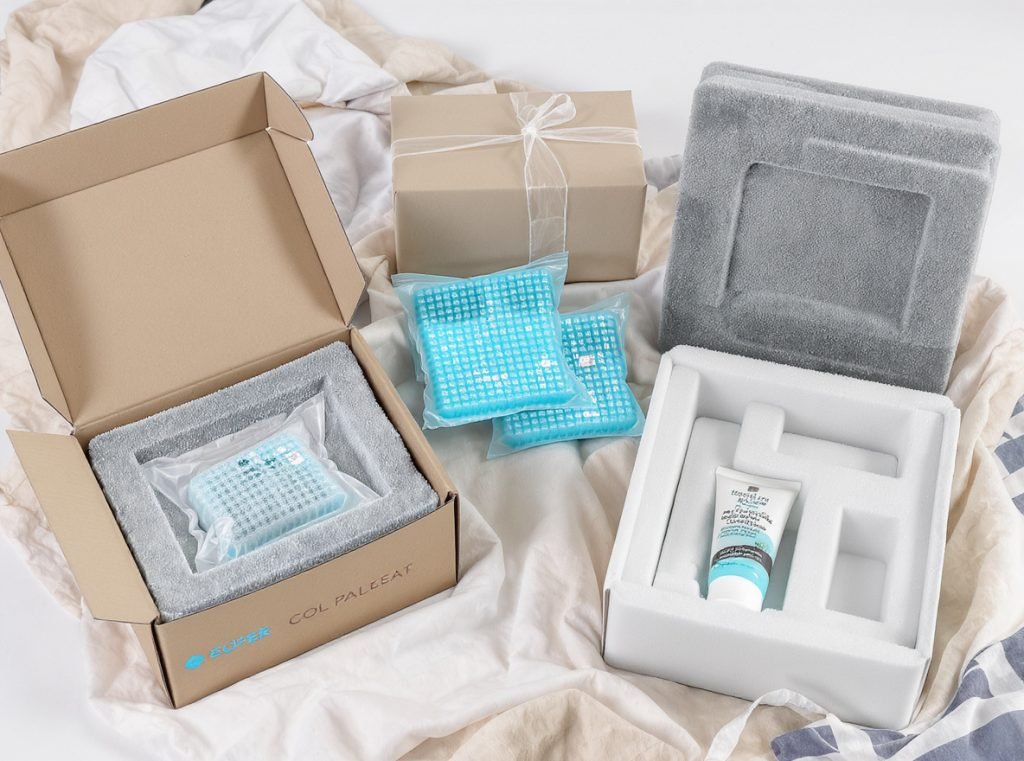
Temperature Control Systems
Cosmetic products are highly sensitive to temperature fluctuations that can compromise their quality and effectiveness. Professional temperature-controlled packaging using insulated shipping boxes, liners, gel packs, and dry ice helps maintain stable internal temperatures.
Products should typically be stored between 50°F and 70°F to maintain stability and prevent degradation. Modern cold storage facilities utilize real-time temperature monitoring with smart alarms and automated systems to prevent spoilage.
Protective Packaging Solutions for Different Product Types
Eyelash Products Protection:
- Aluminum-lined pouches for serums to prevent moisture contamination
- Amber or opaque containers to prevent UV degradation of active ingredients
- Air-tight sealing to prevent oxidation in liquid adhesives
Nail Polish Shipping Requirements:
- Impact-resistant glass or high-quality plastic bottles with proper thread design
- Leak-proof cap systems to prevent spills during transit
- Adequate cushioning materials including bubble wrap and foam inserts
- Double-boxing provides extra protection for fragile glass containers
Tamper-evident seals and secure packaging protect against contamination during transit, while proper labeling indicating fragile contents ensures careful handling throughout the supply chain.
What Design Elements Make Your Packaging Stand Out on Shelves?
In the competitive beauty market where 70% of customers report that packaging influences their buying decisions, your design serves as your primary marketing tool.
Successful beauty packaging combines eye-catching visual elements, premium materials, functional design, and brand consistency to create emotional connections with consumers and drive purchase decisions at the point of sale.
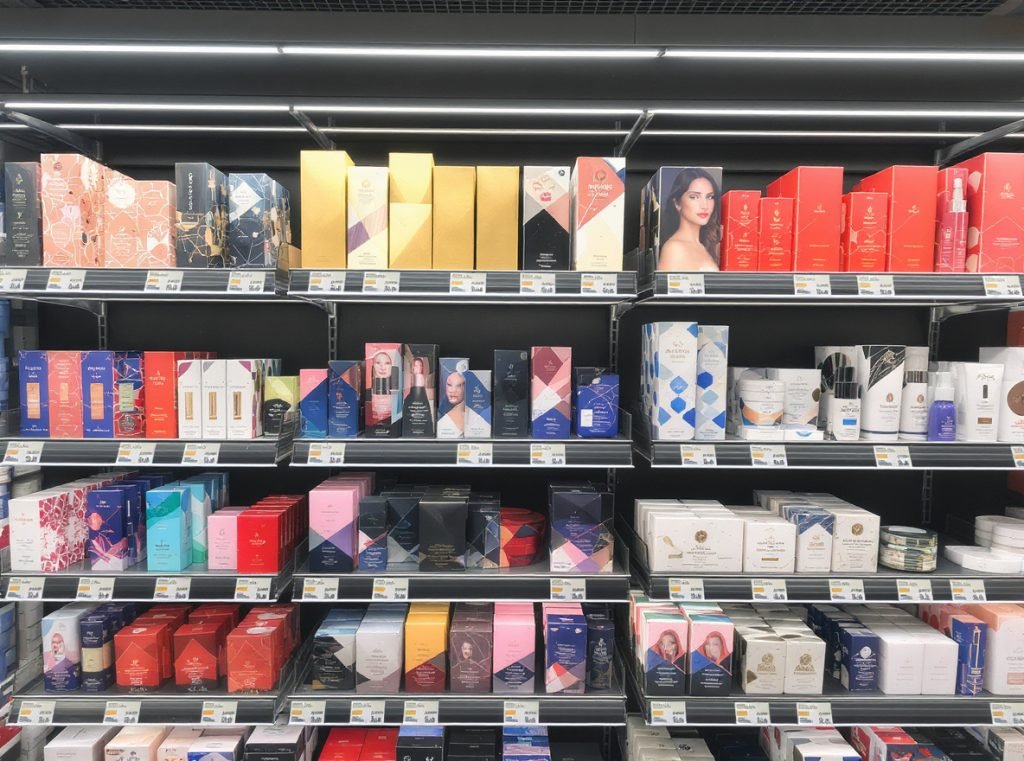
Visual Impact Strategies
Premium brands like Glossier have mastered minimalist design with clean white space, pink accents, and simple typography that translates well to social media. Conversely, brands targeting alternative audiences use dramatic dark colors, holograms, and unconventional shapes to stand out.
Current 2025 design trends favor:
- Flat illustrations with bold geometric shapes and vibrant color blocking
- Groovy and distorted lettering creating emotional impact for younger demographics
- Deep jewel tones, rich ambers, and minimalist black-and-white schemes conveying sophistication
Material Selection for Premium Feel
High-quality packaging materials significantly enhance perceived product value and justify higher price points:
- Glass containers convey luxury and sustainability while providing superior protection
- Metal containers offer durability and recyclability, though opacity may limit product visibility
- Premium plastic finishes with tactile elements and substantial construction elevate customer experience
| Design Element | Eyelash Products | Nail Products |
|---|---|---|
| Color Psychology | Pink, gold, black for luxury appeal | Color-matched to polish shade for instant recognition |
| Material Feel | Soft-touch, premium textures | Smooth, easy-clean surfaces for salon use |
| Opening Mechanism | Magnetic closures, sliding boxes | Twist-off caps, controlled dispensers |
How Can You Make Your Packaging More Sustainable?
With 65% of consumers prioritizing environmentally friendly packaging, sustainability has become a key differentiator in beauty product purchasing decisions.
Sustainable packaging reduces environmental impact through recyclable materials, minimal waste design, refillable options, and responsible sourcing while maintaining product protection and visual appeal to meet modern consumer expectations.
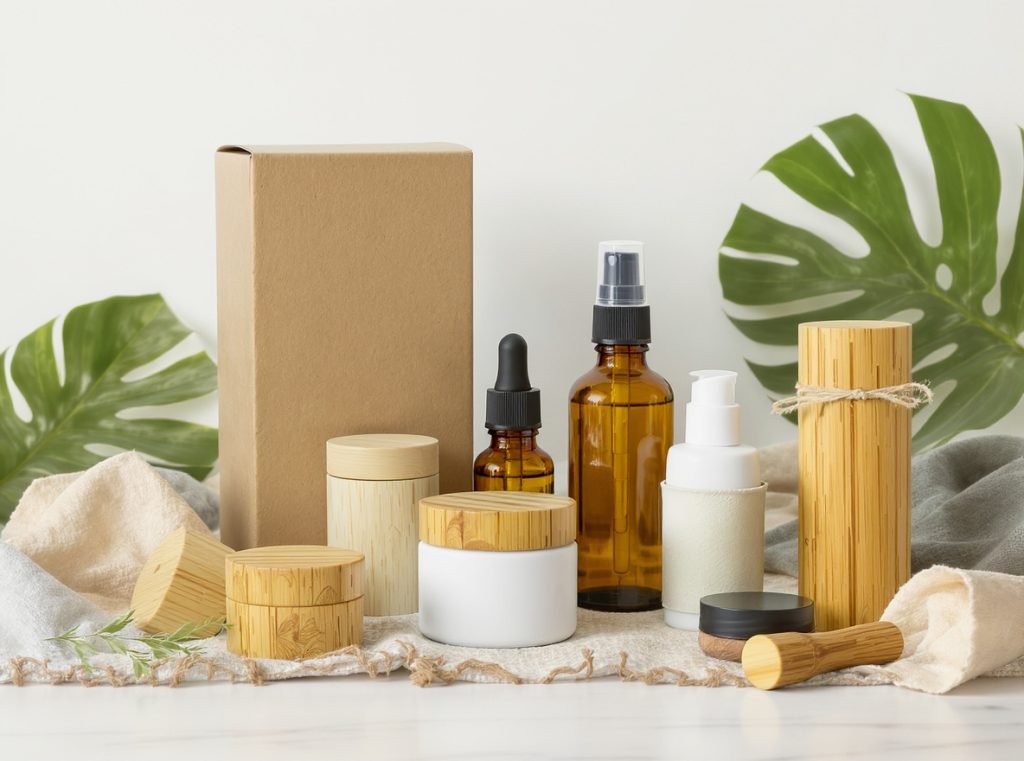
Eco-Friendly Material Options
Post-Consumer Recycled (PCR) packaging dominates sustainable cosmetic packaging due to its flexibility, protection capabilities, and strong barrier performance. PCR materials can be shaped into various forms and sizes, making them perfect for cream jars and lotion bottles while reducing carbon footprint.
Top Sustainable Material Choices:
- Glass and aluminum: Infinitely recyclable with premium appeal
- Post-consumer recycled plastics: Flexible with excellent barrier properties
- Bamboo packaging: Renewable sourcing with natural aesthetic appeal
- Silicone alternatives: Plastic-like functionality without toxic substance release
Refillable and Circular Economy Solutions
Luxury brands like La Bouche Rouge offer refillable lipstick cases made from leather and recyclable materials. These systems not only reduce environmental impact but foster brand loyalty through repeat purchases.
Companies are investing in mono-material packaging to simplify recycling processes and refillable formats to extend product lifecycles. However, challenges remain in balancing sustainability goals with performance requirements like barrier protection, durability, and aesthetic appeal.
What Are the Cost-Effective Packaging Solutions for Different Market Segments?
The prestige/premium tier held the largest market share in 2024, driven by advanced designs and high-quality materials, while cost management remains crucial across all market segments.
Cost-effective packaging balances material quality, production volumes, customization levels, and functionality requirements to meet specific market segment needs while maintaining profitability and appropriate brand positioning.

Premium vs. Mass Market Differentiation
Premium Market Strategies:
- Advanced designs with decorative techniques and innovative functionality
- High-quality materials justifying premium price points
- Customization and unique unboxing experiences
- Enhanced perceived value through superior construction
Mass Market Approaches:
- Plastic packaging dominates with 64.58% market share due to cost efficiency
- Polyethylene terephthalate leads for personal care bottles
- Polypropylene secures pump components and closures
- Standard bottle shapes avoiding custom molds
Managing Rising Material Costs
The cosmetic plastic packaging market faces challenges from rising raw material costs, especially for specialty polymers and high-quality plastics. Price-sensitive brands may resist premium or sustainable solutions, limiting widespread adoption.
| Market Segment | Packaging Budget % | Key Features | ROI Focus |
|---|---|---|---|
| Mass Market | 5-10% of product cost | Functional, cost-efficient, recyclable | Volume sales |
| Mid-Range | 10-15% of product cost | Attractive design, good protection | Market differentiation |
| Premium/Luxury | 15-25% of product cost | Custom shapes, premium materials | Brand positioning |
Bottles and jars continue as packaging mainstays due to excellent shelf appeal, ease of use, and versatility across price points, while tubes offer cost-effective solutions for controlled dispensing with minimal waste.
How Do You Optimize Packaging for E-commerce vs. Retail Display?
Different sales channels require distinct packaging strategies, as one-size-fits-all approaches rarely succeed across both retail and e-commerce environments.
E-commerce packaging prioritizes shipping protection, unboxing experience, and photogenic design, while retail packaging focuses on shelf visibility, handling durability, and immediate point-of-sale impact to drive different purchasing behaviors.
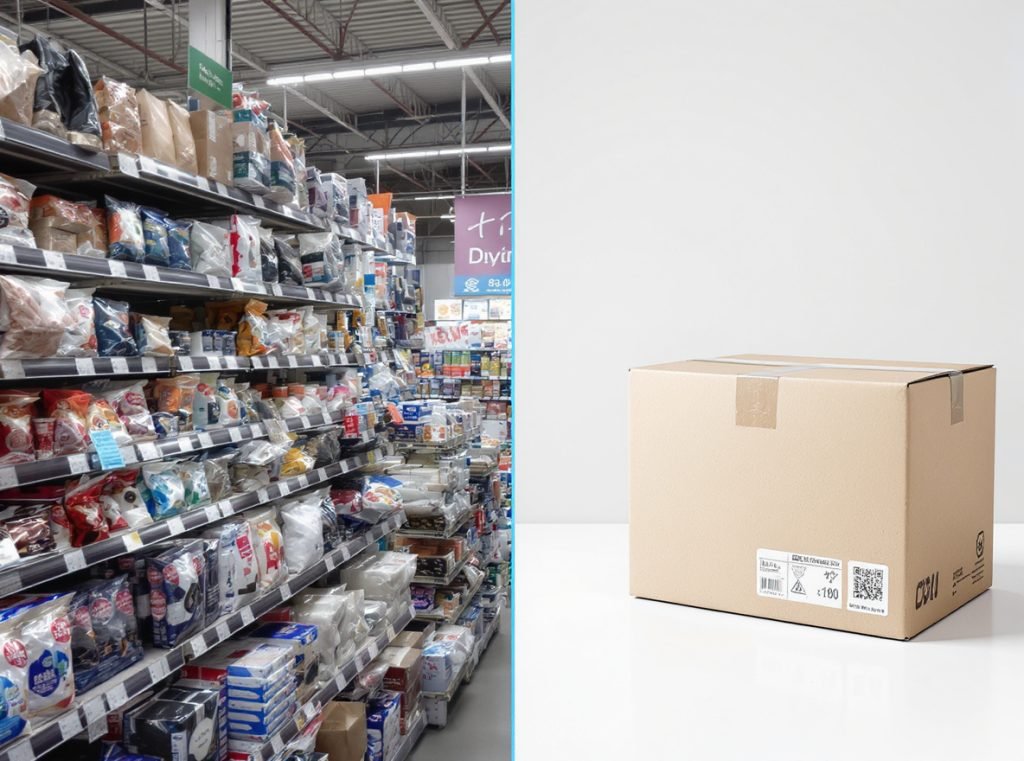
E-commerce Packaging Optimization
Online sales demand packaging that survives multiple handling points and extended transit times:
- Robust construction with heavy corrugated board, inserts, or cushioning
- Lightweight materials to reduce shipping costs while maintaining protection
- Digital printing capabilities enabling customization for smaller runs
- Experiential unboxing with inserts, thank-you notes, or QR codes
Retail Display Requirements
Physical retail environments require different considerations:
- Maximum shelf visibility through bold graphics and clear product identification
- Compact designs that maximize stacking efficiency in limited shelf space
- Sturdy construction to withstand customer examination and staff handling
- Clear product visibility helping customers make quick purchase decisions
Strategic Channel Considerations
Successful brands often develop channel-specific packaging strategies rather than compromising functionality. Retail-optimized packaging may lack durability for shipping, while e-commerce packaging can appear bulky and wasteful on store shelves.
Consider dual-purpose solutions like outer shipping boxes that double as gift packaging, or retail-ready displays that ship efficiently while maintaining brand consistency across all touchpoints.
What Labeling and Information Requirements Are Essential?
Proper labeling ensures regulatory compliance while providing customers with necessary product information to build trust and enable safe usage.
Essential labeling includes ingredient transparency, usage instructions, safety warnings, contact information, and batch tracking codes to meet legal requirements, build consumer trust, and enable effective customer service and product recalls if needed.
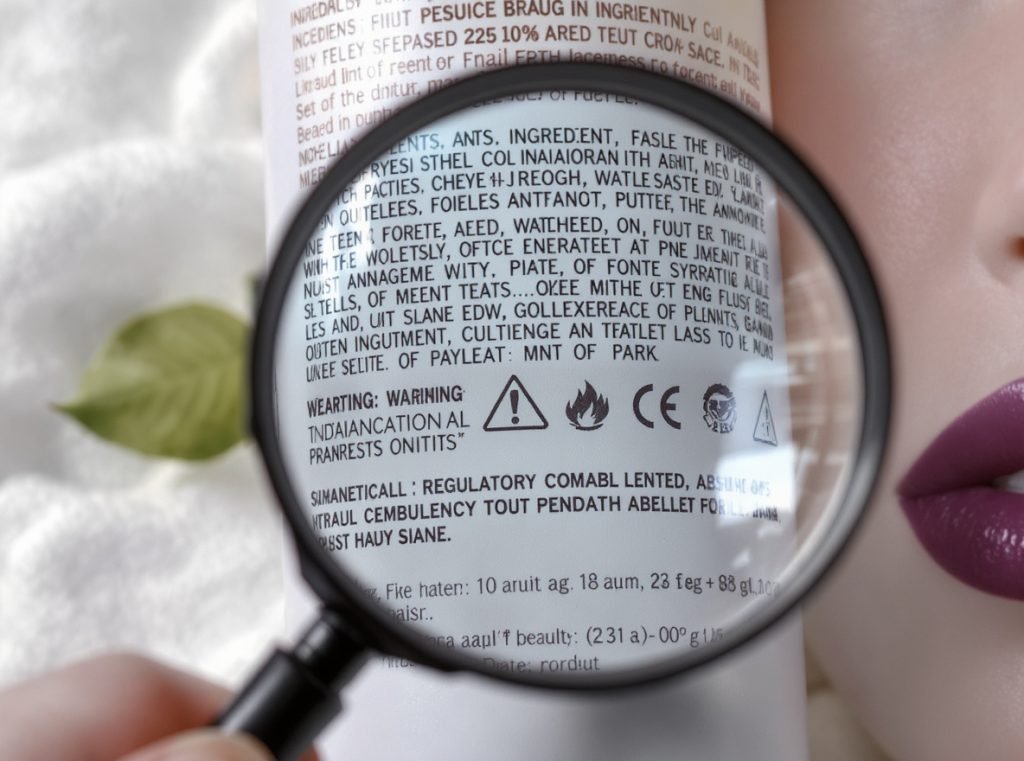
Mandatory FDA Labeling Requirements
Type size requirements specify minimum 1/16 inch height for most text, with smaller 1/32 inch allowances for packages under 12 square inches. Warning statements maintain 1/16 inch minimum height regardless of package size.
Required Front Panel Elements:
- Product identity and brand name clearly visible
- Net contents in both US customary and metric units
- Any required safety symbols or warnings with proper contrast
Back Panel Information:
- Complete ingredient list in descending order of predominance
- Directions for use and safety precautions
- Manufacturer contact information with full address
- Batch codes for traceability and quality control
Product-Specific Safety Requirements
Nail Products Additional Requirements:
- Flammability warnings and proper ventilation instructions
- FDA-approved colorants suitable for intended use areas
- Special handling instructions for professional-use products
Eyelash Extension Products:
- Clear application and removal instructions with safety warnings
- Material Safety Data Sheets for adhesives and chemical components
- Professional-use labeling may differ from consumer retail requirements
International Market Considerations
Different global markets have varying regulatory requirements that impact packaging design:
- European Union: Specific ingredient concentration limits and safety assessments
- Canada: Bilingual labeling requirements (English and French)
- Australia: Mandatory allergen warnings and local contact information
Multi-language labeling or region-specific packaging may be necessary for global distribution, requiring flexible design systems that accommodate different text lengths and regulatory requirements.
Summary
Successful eyelash and nail product packaging requires systematic attention to FDA compliance, temperature-controlled protection, compelling visual design, sustainable materials, cost optimization, channel-specific strategies, and comprehensive labeling. By addressing these considerations strategically, you’ll create packaging that protects products, drives sales, and builds lasting brand loyalty.

Ready to elevate your beauty product packaging with expert guidance? Contact Acreet today for professional consultation on custom packaging solutions that meet all regulatory requirements while maximizing your brand’s market impact. Our experienced team specializes in helping beauty brands navigate packaging complexities and create solutions that deliver measurable results.
